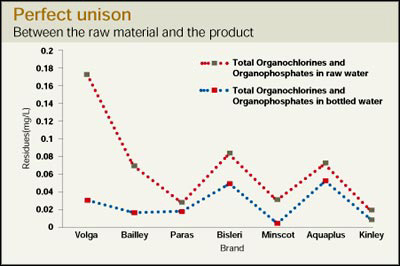Will loan waiver address farm distress?
It will provide only short-term relief THERE arefour crore small and marginal farmers who are unable to repay their crop loans to the banks. The Rs 60,000-crore budgetary allocation for waiving their loans will now enable a farmer to go back to the same bank, apply for another loan and await either of these two outcomes: a good crop or another loan waiver. While the gesture provides farmers relief in the short term, it would be harmful for the economy, especially the farm economy, in the long run. If we take the risk versus reward incentive out of an economic activity such as agribusiness, the enterprise quotient diminishes and hinders both growth and innovation.These key attributes, along with structural reforms and investment in agri-infrastructure, are needed to raise agricultural productivity and maintain the growth trajectory of the economy. The question we need to ask ourselves is why these farmers have not been able to repay their crop loans. Can Rs 15,000-per-farmer reward help them produce a better crop in the next season? The answer sadly is No. Small farmers face two main challenges: meeting their input needs (seeds, pesticides) and dealing with the weather risks to their crops. Issuance of input coupons for purchase of quality inputs for the next season would have been more beneficial. Bad weather plays havoc with agriculture. Dealing with weather risk calls for appropriate risk management tools such as weather insurance. This requires a network of weather stations at the block level for timely collation of data, a basic requirement for weather insurance products. Establishing a network of weather stations would have required only a fraction of the Rs 60,000 crore outlay. The budget will definitely encourage the creation of rural enterprises such as nurseries and cold chain establishment. The one-time budgetary assistance of Rs 75 crore for setting up mobile soil testing facilities is also a good step. However, the provision of Rs 60,000 crore for loan waiver which can at best provide short-term relief to farmers has robbed them of possible agri-infrastructure projects such as roads, marketing and storage facilities, and irrigation which could have yielded better returns on a sustainable basis. (*Country Head, Food & Agribusiness Strategic Advisory & Research) RAKESH TIKAIT Spokesman, Bhartiya Kissan Union It will not solve the deepening agri crisis THE Union budget 2008-09 is prima facie a pro-farmer budget, with the primary emphasis on writing off the loans of small and marginal farmers. It is a good step to provide instant relief to farmers who are heavily indebted, although it covers only 40% of total farmers. However, the debt relief will not solve the deepening agrarian distress. Nevertheless, we see the announcement of debt waiver as a victory of farmers' union, activists and pro-farmer media. It was a great battle and we are grateful that the finance minister took this step despite corporate pressure. We believe that this measure alone is not enough to address the farmers' problems. It is well known that the basic problem faced by farmers is their inability to get fair price for their produce. The policy makers have said nothing on this count. Nothing has also been said about ensuring better farm gate price for agriculture commodities or making available a price stabilisation fund to help farmers increase their income. The price offered for the commodities produced by them must not only fully cover their cost of production but also ensure livelihood security. Subsidy is another area of concern. Traders and producers are currently getting all the benefits while farmers have to suffer due to scarcity of fertiliser. The budget has also not made any announcement to strengthen the extension services of the ministry of agriculture to make it more relevant for the farmers. As a result, farmers are forced to depend on agents of pesticide and seed companies for technical advice. It seems that the government has made up its mind to hand over this system to the corporate sector. In this context, we are closely watching the Indo-US knowledge agreement and the multinational companies in seed business. In conclusion, although the budget is pro-farmer, the actual need of the Indian farmer is not just the removal of debt and interest. Many other important issues need to be addressed. These include access to market, fair price for produce, timely availability of fertilisers and seeds, direct subsidy and the public sector investment in agriculture business. We hope the government will consider all this in future. And the main need is to keep corporates far from farming business. K CHAKRAVARTHY Country Head* YES BANK













